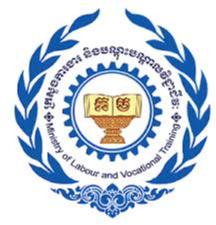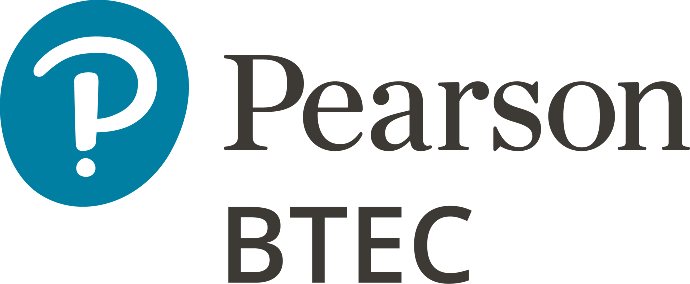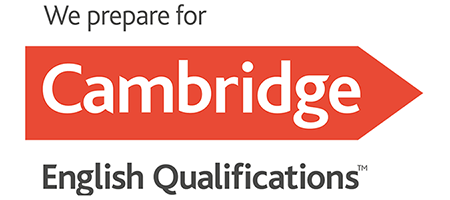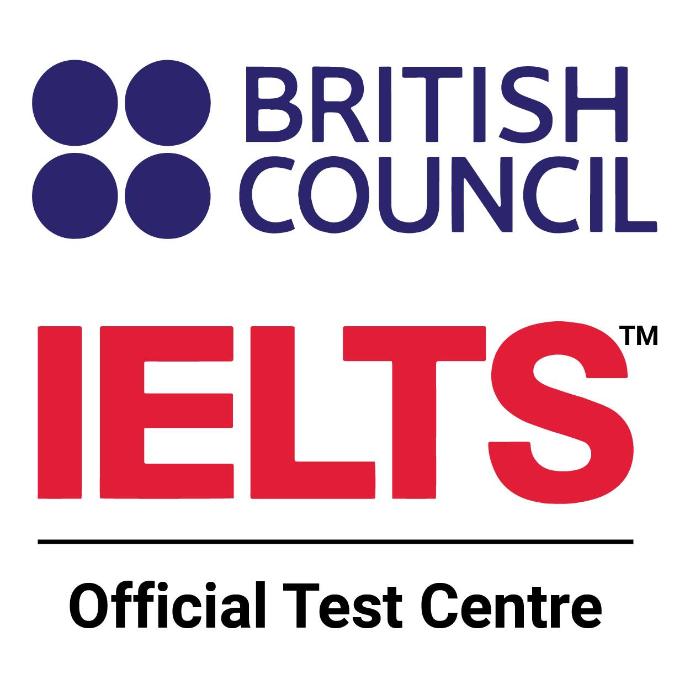| Foundation Diploma | Higher Diploma | Top up Degree | Undergraduate Degree |
Overview
Human resource management (HRM) is the strategic and coherent approach to the management of an organisation’s most valued assets – the people working there who individually and collectively contribute to the achievement of the objectives of the business. HRM is the organisational function that deals with issues related to people, such as recruiting, hiring, compensation, performance management, organisation development, safety, wellness, benefits, employee motivation, communication, administration, and training.
Keys information
Delivery mode(s):
Classroom | Online | Blend
Study modes(s):
Full time | Part time
Duration: 8 months
Campus location:
Toul Kork | Toul Tompoung
Tuition fees:
local | International
Starting: September | February | May
Application deadline:
Click here
Delivery mode(s): Classroom | Online | Blend
Study modes(s): Full time | Part time
Duration: 8 months
Campus location: Toul Kork | Toul Tompoung
Tuition fees: local | International
Starting: September | February | May
Application deadline: Click here

Keys information
Delivery mode(s):
Classroom | Online | Blend
Study modes(s):
Full time | Part time
Duration: 18 months
Campus location:
Toul Kork | Toul Tompoung
Tuition fees:
local | International
Starting: September | February | May
Application deadline:
More information
Delivery mode(s): Classroom | Online | Blend
Study modes(s): Full time | Part time
Duration: 18 months
Campus location: Toul Kork | Toul Tompoung
Tuition fees: local | International
Starting: September | February | May
Application deadline: More information
Academic requirements
For students who have recently been in education, the entry profile is likely to include
one of the following:
● 16-
19 years of age and above
● a minimum of 11 years school education completed with good grades, or
currently studying 12 grade, at a recognised international secondary school.
●
an international equivalent qualification such as IGCSE, O-Level, or first year of A-Level, IB, or APs.
● mature applicants with no formal academic qualifications but related work
experience can be considered case by case.
English language requirements
All students who are
non-native English speakers and who have not undertaken their final two years of
schooling in English can demonstrate capability in English at a standard equivalent to
the levels identified below, before being recruited to the programme:
●
Common European Framework of Reference (CEFR) Level B1
● Cambridge English: B1 Preliminary
● IELTS 5.5; Reading and Writing must be at 5.5
●
PTE – General Level 2
●
PTE Academic 36
●
or equivalent.

Keys information
Delivery mode(s):
Classroom | Online | Blend
Study modes(s):
Full time | Part time
Duration: 9 months
Campus location:
Toul Kork | Toul Tompoung
Tuition fees:
local | International
Starting: September | February | May
Application deadline:
More information
Delivery mode(s): Classroom | Online | Blend
Study modes(s): Full time | Part time
Duration: 9 months
Campus location: Toul Kork | Toul Tompoung
Tuition fees: local | International
Starting: September | February | May
Application deadline: More information
Academic requirements
For students who have recently been in education, the entry profile is likely to include
one of the following:
● 16-
19 years of age and above
● a minimum of 11 years school education completed with good grades, or
currently studying 12 grade, at a recognised international secondary school.
●
an international equivalent qualification such as IGCSE, O-Level, or first year of A-Level, IB, or APs.
● mature applicants with no formal academic qualifications but related work
experience can be considered case by case.
English language requirements
All students who are
non-native English speakers and who have not undertaken their final two years of
schooling in English can demonstrate capability in English at a standard equivalent to
the levels identified below, before being recruited to the programme:
●
Common European Framework of Reference (CEFR) Level B1
● Cambridge English: B1 Preliminary
● IELTS 5.5; Reading and Writing must be at 5.5
●
PTE – General Level 2
●
PTE Academic 36
●
or equivalent.

Keys information
Delivery mode(s):
Classroom | Online | Blend
Study modes(s):
Full time | Part time
Duration: 18 months + 9 months
Campus location:
Toul Kork | Toul Tompoung
Tuition fees:
local | International
Starting: September | February | May
Application deadline:
More information
Delivery mode(s): Classroom | Online | Blend
Study modes(s): Full time | Part time
Duration: 18 months + 9 months
Campus location: Toul Kork | Toul Tompoung
Tuition fees: local | International
Starting: September | February | May
Application deadline: More information
Academic requirements
For students who have recently been in education, the entry profile is likely to include
one of the following:
● 16-
19 years of age and above
● a minimum of 11 years school education completed with good grades, or
currently studying 12 grade, at a recognised international secondary school.
●
an international equivalent qualification such as IGCSE, O-Level, or first year of A-Level, IB, or APs.
● mature applicants with no formal academic qualifications but related work
experience can be considered case by case.
English language requirements
All students who are
non-native English speakers and who have not undertaken their final two years of
schooling in English can demonstrate capability in English at a standard equivalent to
the levels identified below, before being recruited to the programme:
●
Common European Framework of Reference (CEFR) Level B1
● Cambridge English: B1 Preliminary
● IELTS 5.5; Reading and Writing must be at 5.5
●
PTE – General Level 2
●
PTE Academic 36
●
or equivalent.

Keys information
Delivery mode(s):
Classroom | Online | Blend
Study modes(s):
Full time | Part time
Duration: 2 academic terms
Campus location: Toul Kork | Toul Tompoung
Tuition fees:
local | International
Starting: September | February | May
Application deadline: 25 Aug | 25 Jan | 25 Apr
Delivery mode(s): Classroom | Online | Blend
Study modes(s): Full time | Part time
Duration: 2 academic terms
Campus location: Toul Kork | Toul Tompoung
Tuition fees: local | International
Starting: September | February | May
Application deadline: 25 Aug | 25 Jan | 25 Apr
Academic requirements
For students who have recently been in education, the entry profile is likely to include
one of the following:
● 16-
19 years of age and above
● a minimum of 11 years school education completed with good grades, or
currently studying 12 grade, at a recognised international secondary school.
●
an international equivalent qualification such as IGCSE, O-Level, or first year of A-Level, IB, or APs.
● mature applicants with no formal academic qualifications but related work
experience can be considered case by case.
English language requirements
All students who are
non-native English speakers and who have not undertaken their final two years of
schooling in English can demonstrate capability in English at a standard equivalent to
the levels identified below, before being recruited to the programme:
●
Common European Framework of Reference (CEFR) Level B1
● Cambridge English: B1 Preliminary
● IELTS 5.5; Reading and Writing must be at 5.5
●
PTE – General Level 2
●
PTE Academic 36
●
or equivalent.

Keys information
Delivery mode(s):
Classroom | Online| Blend
Study modes(s):
Full time | Part time
Duration: 2 academic terms
Campus location: Toul Kork | Toul Tompoung
Tuition fees:
local | International
Starting: September | February | May
Application deadline: 25 Aug | 25 Jan | 25 Apr
Delivery mode(s): Classroom | Online| Blend
Study modes(s): Full time | Part time
Duration: 2 academic terms
Campus location: Toul Kork | Toul Tompoung
Tuition fees: local | International
Starting: September | February | May
Application deadline: 25 Aug | 25 Jan | 25 Apr
Academic requirements
For students who have recently been in education, the entry profile is likely to include
one of the following:
● 16-
19 years of age and above
● a minimum of 11 years school education completed with good grades, or
currently studying 12 grade, at a recognised international secondary school.
●
an international equivalent qualification such as IGCSE, O-Level, or first year of A-Level, IB, or APs.
● mature applicants with no formal academic qualifications but related work
experience can be considered case by case.
English language requirements
All students who are
non-native English speakers and who have not undertaken their final two years of
schooling in English can demonstrate capability in English at a standard equivalent to
the levels identified below, before being recruited to the programme:
●
Common European Framework of Reference (CEFR) Level B1
● Cambridge English: B1 Preliminary
● IELTS 5.5; Reading and Writing must be at 5.5
●
PTE – General Level 2
●
PTE Academic 36
●
or equivalent.

Keys information
Delivery mode(s):
Classroom | Online | Blend
Study modes(s):
Full time | Part time
Duration: 2 academic terms
Campus location: Toul Kork | Toul Tompoung
Tuition fees:
local | International
Starting: September | February | May
Application deadline: 25 Aug | 25 Jan | 25 Apr
Delivery mode(s): Classroom | Online | Blend
Study modes(s): Full time | Part time
Duration: 2 academic terms
Campus location: Toul Kork | Toul Tompoung
Tuition fees: local | International
Starting: September | February | May
Application deadline: 25 Aug | 25 Jan | 25 Apr
Academic requirements
For students who have recently been in education, the entry profile is likely to include
one of the following:
● 16-
19 years of age and above
● a minimum of 11 years school education completed with good grades, or
currently studying 12 grade, at a recognised international secondary school.
●
an international equivalent qualification such as IGCSE, O-Level, or first year of A-Level, IB, or APs.
● mature applicants with no formal academic qualifications but related work
experience can be considered case by case.
English language requirements
All students who are
non-native English speakers and who have not undertaken their final two years of
schooling in English can demonstrate capability in English at a standard equivalent to
the levels identified below, before being recruited to the programme:
●
Common European Framework of Reference (CEFR) Level B1
● Cambridge English: B1 Preliminary
● IELTS 5.5; Reading and Writing must be at 5.5
●
PTE – General Level 2
●
PTE Academic 36
●
or equivalent.

How we Work
Come up with your big idea.
We take care of the rest.
“Soon is not as good as now.”
~Seth Godin
Academic requirements
For students who have recently been in education, the entry profile is likely to include
one of the following:
● 16-
19 years of age and above
● a minimum of 11 years school education completed with good grades, or
currently studying 12 grade, at a recognised international secondary school.
●
an international equivalent qualification such as IGCSE, O-Level, or first year of A-Level, IB, or APs.
● mature applicants with no formal academic qualifications but related work
experience can be considered case by case.
English language requirements
All students who are
non-native English speakers and who have not undertaken their final two years of
schooling in English can demonstrate capability in English at a standard equivalent to
the levels identified below, before being recruited to the programme:
●
Common European Framework of Reference (CEFR) Level B1
● Cambridge English: B1 Preliminary
● IELTS 5.5; Reading and Writing must be at 5.5
●
PTE – General Level 2
●
PTE Academic 36
●
or equivalent.

How we Work
Come up with your big idea.
We take care of the rest.
“Soon is not as good as now.”
~Seth Godin
Academic requirements
For students who have recently been in education, the entry profile is likely to include
one of the following:
● 16-
19 years of age and above
● a minimum of 11 years school education completed with good grades, or
currently studying 12 grade, at a recognised international secondary school.
●
an international equivalent qualification such as IGCSE, O-Level, or first year of A-Level, IB, or APs.
● mature applicants with no formal academic qualifications but related work
experience can be considered case by case.
English language requirements
All students who are
non-native English speakers and who have not undertaken their final two years of
schooling in English can demonstrate capability in English at a standard equivalent to
the levels identified below, before being recruited to the programme:
●
Common European Framework of Reference (CEFR) Level B1
● Cambridge English: B1 Preliminary
● IELTS 5.5; Reading and Writing must be at 5.5
●
PTE – General Level 2
●
PTE Academic 36
●
or equivalent.

How we Work
Come up with your big idea.
We take care of the rest.
“Soon is not as good as now.”
~Seth Godin
Academic requirements
For students who have recently been in education, the entry profile is likely to include
one of the following:
● 16-
19 years of age and above
● a minimum of 11 years school education completed with good grades, or
currently studying 12 grade, at a recognised international secondary school.
●
an international equivalent qualification such as IGCSE, O-Level, or first year of A-Level, IB, or APs.
● mature applicants with no formal academic qualifications but related work
experience can be considered case by case.
English language requirements
All students who are
non-native English speakers and who have not undertaken their final two years of
schooling in English can demonstrate capability in English at a standard equivalent to
the levels identified below, before being recruited to the programme:
●
Common European Framework of Reference (CEFR) Level B1
● Cambridge English: B1 Preliminary
● IELTS 5.5; Reading and Writing must be at 5.5
●
PTE – General Level 2
●
PTE Academic 36
●
or equivalent.
Who are these qualifications for?
The Pearson BTEC International Level 3 qualifications in Business, and in Enterprise and
Entrepreneurship, are primarily designed for learners in the 16–19 age group, who wish
to pursue a career in business, primarily via higher education to access graduate entry
employment with businesses, or alternatively through junior business employment.
What do the qualifications cover?
The qualifications give learners experience of the breadth and depth of the sector that
will prepare them for further study or training. This includes the opportunity for learners
to choose several topics from a selection of options reflecting the progression pathways
in business.
The learning programme covers the following content areas:
• business environments
• marketing
• finance
• international business
• management
• enterprise and entrepreneurship.
The optional units have been designed to support progression to business courses in
higher education, and to link with relevant occupational areas. They cover content areas
such as:
• human resources
• accounting
• financial services
• marketing
• retail.
Assessment
Assessment is designed to fit the purpose and objective of the qualification. It includes a range of assessment types and styles suited to vocational qualifications in the sector.
All assessment is internal but some mandatory units have extra controls on assessment and are assessed using Pearson Set Assignments. Additionally, some units are synoptic.
Set assignment units
Some mandatory units in the qualifications are assessed using a set assignment.
Each assessment is set by Pearson and may need to be taken under controlled
conditions before it is marked by teachers.
Set assignment units are subject to external standards verification processes common to
all BTEC units. By setting an assignment for some units, we can ensure that all learners
take the same assessment for a specific unit. Learners are permitted to resit set
assignment units during their programme. Please see Section 6 Internal assessment
for further information.
Set assignments are available from September each year and are valid for one year
only. For detailed information on the Pearson Set Assignment, please see the table
in Section 2 Structure. For further information on preparing for assessment,
see Section 5 Assessment structure.
Internal assessment
All units in the sector are internally assessed and subject to external standards
verification. Before you assess you will need to become an approved centre,
if you are not one already. You will need to prepare to assess using the guidance
in Section 6 Internal assessment.
For units where there is no Pearson Set Assignment, you select the most appropriate
assessment styles according to the learning set out in the unit. This ensures that
learners are assessed using a variety of styles to help them develop a broad range
of transferable skills. Learners could be given opportunities to:
• write up the findings of their own research
• use case studies to explore complex or unfamiliar situations
• carry out projects for which they have choice over the direction and outcomes
• demonstrate practical and technical skills using appropriate processes.
For these units, Pearson will provide an Authorised Assignment brief that you can use.
You will make grading decisions based on the requirements and supporting guidance
given in the units. Learners may not make repeated submissions of assignment
evidence. For further information, please see Section 6 Internal assessment.
Language of assessment
Assessment of the units for these qualifications are available in English but can be
translated as necessary.
All learner work must be available for standardisation in English. A learner taking
the qualification/s may be assessed in sign language where it is permitted for the
purpose of reasonable adjustment. For information on reasonable adjustments,
see Section 7 Administration arrangements.
How do these qualifications provide transferable employability skills?
In the BTEC International Level 3 units, there are opportunities during the teaching and
learning phase to give learners practice in developing employability skills. Where we
refer to employability skills in this specification, we are generally referring to skills in
the following three main categories:
• cognitive and problem-solving skills – using critical thinking,
approaching non-routine problems, applying expert and creative solutions,
using systems and technology
• interpersonal skills – communicating, working collaboratively,
negotiating and influencing, self-presentation
• intrapersonal skills – self-management, adaptability and resilience,
self-monitoring and development.
There are also specific requirements in some units for assessment of these skills where
relevant, for example where learners are required to undertake real or simulated
activities.
What could these qualifications lead to?
The qualifications are recognised by higher education providers as contributing to
meeting admission requirements to many relevant courses, for example:
• Higher National Diploma in Business
• BSc (Hons) in Business and Management
• BA (Hons) in Business and Finance
• BA (Hons) in Business with Human Resource Management
• BA (Hons) and BSc (Hons) in Business Studies
• BSc (Hons) in International Management
• BSc (Hons) or BA (Hons) in Marketing
• BSc (Hons) in Retail Management.
Learners should always check the entry requirements for degree programmes with
specific higher education providers.
After this qualification, learners can also progress directly into employment, however it is
likely that many will do so via higher study. Areas of employment include junior business
roles in marketing, administration, finance, financial services, procurement, events
management, human resources, and other related areas in the business sector.
Who are these qualifications for?
The Pearson BTEC International Level 3 qualifications in Business, and in Enterprise and
Entrepreneurship, are primarily designed for learners in the 16–19 age group, who wish
to pursue a career in business, primarily via higher education to access graduate entry
employment with businesses, or alternatively through junior business employment.
What do the qualifications cover?
The qualifications give learners experience of the breadth and depth of the sector that
will prepare them for further study or training. This includes the opportunity for learners
to choose several topics from a selection of options reflecting the progression pathways
in business.
The learning programme covers the following content areas:
• business environments
• marketing
• finance
• international business
• management
• enterprise and entrepreneurship.
The optional units have been designed to support progression to business courses in
higher education, and to link with relevant occupational areas. They cover content areas
such as:
• human resources
• accounting
• financial services
• marketing
• retail.
Assessment
Assessment is designed to fit the purpose and objective of the qualification. It includes a range of assessment types and styles suited to vocational qualifications in the sector.
All assessment is internal but some mandatory units have extra controls on assessment and are assessed using Pearson Set Assignments. Additionally, some units are synoptic.
Set assignment units
Some mandatory units in the qualifications are assessed using a set assignment.
Each assessment is set by Pearson and may need to be taken under controlled
conditions before it is marked by teachers.
Set assignment units are subject to external standards verification processes common to
all BTEC units. By setting an assignment for some units, we can ensure that all learners
take the same assessment for a specific unit. Learners are permitted to resit set
assignment units during their programme. Please see Section 6 Internal assessment
for further information.
Set assignments are available from September each year and are valid for one year
only. For detailed information on the Pearson Set Assignment, please see the table
in Section 2 Structure. For further information on preparing for assessment,
see Section 5 Assessment structure.
Internal assessment
All units in the sector are internally assessed and subject to external standards
verification. Before you assess you will need to become an approved centre,
if you are not one already. You will need to prepare to assess using the guidance
in Section 6 Internal assessment.
For units where there is no Pearson Set Assignment, you select the most appropriate
assessment styles according to the learning set out in the unit. This ensures that
learners are assessed using a variety of styles to help them develop a broad range
of transferable skills. Learners could be given opportunities to:
• write up the findings of their own research
• use case studies to explore complex or unfamiliar situations
• carry out projects for which they have choice over the direction and outcomes
• demonstrate practical and technical skills using appropriate processes.
For these units, Pearson will provide an Authorised Assignment brief that you can use.
You will make grading decisions based on the requirements and supporting guidance
given in the units. Learners may not make repeated submissions of assignment
evidence. For further information, please see Section 6 Internal assessment.
Language of assessment
Assessment of the units for these qualifications are available in English but can be
translated as necessary.
All learner work must be available for standardisation in English. A learner taking
the qualification/s may be assessed in sign language where it is permitted for the
purpose of reasonable adjustment. For information on reasonable adjustments,
see Section 7 Administration arrangements.
How do these qualifications provide transferable employability skills?
In the BTEC International Level 3 units, there are opportunities during the teaching and
learning phase to give learners practice in developing employability skills. Where we
refer to employability skills in this specification, we are generally referring to skills in
the following three main categories:
• cognitive and problem-solving skills – using critical thinking,
approaching non-routine problems, applying expert and creative solutions,
using systems and technology
• interpersonal skills – communicating, working collaboratively,
negotiating and influencing, self-presentation
• intrapersonal skills – self-management, adaptability and resilience,
self-monitoring and development.
There are also specific requirements in some units for assessment of these skills where
relevant, for example where learners are required to undertake real or simulated
activities.
What could these qualifications lead to?
The qualifications are recognised by higher education providers as contributing to
meeting admission requirements to many relevant courses, for example:
• Higher National Diploma in Business
• BSc (Hons) in Business and Management
• BA (Hons) in Business and Finance
• BA (Hons) in Business with Human Resource Management
• BA (Hons) and BSc (Hons) in Business Studies
• BSc (Hons) in International Management
• BSc (Hons) or BA (Hons) in Marketing
• BSc (Hons) in Retail Management.
Learners should always check the entry requirements for degree programmes with
specific higher education providers.
After this qualification, learners can also progress directly into employment, however it is
likely that many will do so via higher study. Areas of employment include junior business
roles in marketing, administration, finance, financial services, procurement, events
management, human resources, and other related areas in the business sector.
Who are these qualifications for?
The Pearson BTEC International Level 3 qualifications in Business, and in Enterprise and
Entrepreneurship, are primarily designed for learners in the 16–19 age group, who wish
to pursue a career in business, primarily via higher education to access graduate entry
employment with businesses, or alternatively through junior business employment.
What do the qualifications cover?
The qualifications give learners experience of the breadth and depth of the sector that
will prepare them for further study or training. This includes the opportunity for learners
to choose several topics from a selection of options reflecting the progression pathways
in business.
The learning programme covers the following content areas:
• business environments
• marketing
• finance
• international business
• management
• enterprise and entrepreneurship.
The optional units have been designed to support progression to business courses in
higher education, and to link with relevant occupational areas. They cover content areas
such as:
• human resources
• accounting
• financial services
• marketing
• retail.
Assessment
Assessment is designed to fit the purpose and objective of the qualification. It includes a range of assessment types and styles suited to vocational qualifications in the sector.
All assessment is internal but some mandatory units have extra controls on assessment and are assessed using Pearson Set Assignments. Additionally, some units are synoptic.
Set assignment units
Some mandatory units in the qualifications are assessed using a set assignment.
Each assessment is set by Pearson and may need to be taken under controlled
conditions before it is marked by teachers.
Set assignment units are subject to external standards verification processes common to
all BTEC units. By setting an assignment for some units, we can ensure that all learners
take the same assessment for a specific unit. Learners are permitted to resit set
assignment units during their programme. Please see Section 6 Internal assessment
for further information.
Set assignments are available from September each year and are valid for one year
only. For detailed information on the Pearson Set Assignment, please see the table
in Section 2 Structure. For further information on preparing for assessment,
see Section 5 Assessment structure.
Internal assessment
All units in the sector are internally assessed and subject to external standards
verification. Before you assess you will need to become an approved centre,
if you are not one already. You will need to prepare to assess using the guidance
in Section 6 Internal assessment.
For units where there is no Pearson Set Assignment, you select the most appropriate
assessment styles according to the learning set out in the unit. This ensures that
learners are assessed using a variety of styles to help them develop a broad range
of transferable skills. Learners could be given opportunities to:
• write up the findings of their own research
• use case studies to explore complex or unfamiliar situations
• carry out projects for which they have choice over the direction and outcomes
• demonstrate practical and technical skills using appropriate processes.
For these units, Pearson will provide an Authorised Assignment brief that you can use.
You will make grading decisions based on the requirements and supporting guidance
given in the units. Learners may not make repeated submissions of assignment
evidence. For further information, please see Section 6 Internal assessment.
Language of assessment
Assessment of the units for these qualifications are available in English but can be
translated as necessary.
All learner work must be available for standardisation in English. A learner taking
the qualification/s may be assessed in sign language where it is permitted for the
purpose of reasonable adjustment. For information on reasonable adjustments,
see Section 7 Administration arrangements.
How do these qualifications provide transferable employability skills?
In the BTEC International Level 3 units, there are opportunities during the teaching and
learning phase to give learners practice in developing employability skills. Where we
refer to employability skills in this specification, we are generally referring to skills in
the following three main categories:
• cognitive and problem-solving skills – using critical thinking,
approaching non-routine problems, applying expert and creative solutions,
using systems and technology
• interpersonal skills – communicating, working collaboratively,
negotiating and influencing, self-presentation
• intrapersonal skills – self-management, adaptability and resilience,
self-monitoring and development.
There are also specific requirements in some units for assessment of these skills where
relevant, for example where learners are required to undertake real or simulated
activities.
What could these qualifications lead to?
The qualifications are recognised by higher education providers as contributing to
meeting admission requirements to many relevant courses, for example:
• Higher National Diploma in Business
• BSc (Hons) in Business and Management
• BA (Hons) in Business and Finance
• BA (Hons) in Business with Human Resource Management
• BA (Hons) and BSc (Hons) in Business Studies
• BSc (Hons) in International Management
• BSc (Hons) or BA (Hons) in Marketing
• BSc (Hons) in Retail Management.
Learners should always check the entry requirements for degree programmes with
specific higher education providers.
After this qualification, learners can also progress directly into employment, however it is
likely that many will do so via higher study. Areas of employment include junior business
roles in marketing, administration, finance, financial services, procurement, events
management, human resources, and other related areas in the business sector.
These terms of service ("Terms", "Agreement") are an agreement between the website ("Website operator", "us", "we" or "our") and you ("User", "you" or "your"). This Agreement sets forth the general terms and conditions of your use of this website and any of its products or services (collectively, "Website" or "Services").
Although this Website may be linked to other websites, we are not, directly or indirectly, implying any approval, association, sponsorship, endorsement, or affiliation with any linked website, unless specifically stated herein.
You should carefully review the legal statements and other conditions of use of any website which you access through a link from this Website. Your linking to any other off-site pages or other websites is at your own risk.
Website may use cookies to personalize and facilitate maximum navigation of the User by this site. The User may configure his / her browser to notify and reject the installation of the cookies sent by us.
These terms of service ("Terms", "Agreement") are an agreement between the website ("Website operator", "us", "we" or "our") and you ("User", "you" or "your"). This Agreement sets forth the general terms and conditions of your use of this website and any of its products or services (collectively, "Website" or "Services").
Although this Website may be linked to other websites, we are not, directly or indirectly, implying any approval, association, sponsorship, endorsement, or affiliation with any linked website, unless specifically stated herein.
You should carefully review the legal statements and other conditions of use of any website which you access through a link from this Website. Your linking to any other off-site pages or other websites is at your own risk.
Website may use cookies to personalize and facilitate maximum navigation of the User by this site. The User may configure his / her browser to notify and reject the installation of the cookies sent by us.
These terms of service ("Terms", "Agreement") are an agreement between the website ("Website operator", "us", "we" or "our") and you ("User", "you" or "your"). This Agreement sets forth the general terms and conditions of your use of this website and any of its products or services (collectively, "Website" or "Services").
Although this Website may be linked to other websites, we are not, directly or indirectly, implying any approval, association, sponsorship, endorsement, or affiliation with any linked website, unless specifically stated herein.
You should carefully review the legal statements and other conditions of use of any website which you access through a link from this Website. Your linking to any other off-site pages or other websites is at your own risk.
Website may use cookies to personalize and facilitate maximum navigation of the User by this site. The User may configure his / her browser to notify and reject the installation of the cookies sent by us.
The qualifications give learners experience of the breadth and depth of the sector that will prepare them for further study or training. This includes the opportunity for learners to choose several topics from a selection of options reflecting the progression pathways in business.
The learning programme covers the following content areas:
• business environments
• marketing
• finance
• international business
• management
• enterprise and entrepreneurship.
The optional units have been designed to support progression to business courses in higher education, and to link with relevant occupational areas.
They cover content areas such as:
• human resources
• accounting
• financial services
• marketing
retail
Set assignment units are subject to external standards verification processes common to all units. By setting an assignment for some units, we can ensure that all learners take the same assessment for a specific unit. Learners are permitted to resit set assignment units during their programme.
Internal assessment
All units in the sector are internally assessed and subject to external standards verification. Before you assess you will need to become an approved centre, if you are not one already. You will need to prepare to assess using the guidance in Internal assessment. For units where there is no Standard Set Assignment, you select the most appropriate assessment styles according to the learning set out in the unit. This ensures that learners are assessed using a variety of styles to help them develop a broad range of transferable skills. Learners could be given opportunities to:
• write up the findings of their own research
• use case studies to explore complex or unfamiliar situations
• carry out projects for which they have choice over the direction and outcomes
• demonstrate practical and technical skills using appropriate processes.
For these units, we will provide an Authorised Assignment brief that you can use. You will make grading decisions based on the requirements and supporting guidance given in the units. Learners may not make repeated submissions of assignment evidence.
Language of assessment
Assessment of the units for these qualifications are available in English but can be translated as necessary. All learner work must be available for standardisation in English. A learner taking the qualification/s may be assessed in sign language where it is permitted for the purpose of reasonable adjustment
Candidates can be admitted to the program only if they satisfy the admission requirements of the school. Recognition of Prior Learning
Candidates can be granted transfer credits according to the general arrangements for recognition of prior learning of the school.
• cognitive and problem-solving skills – using critical thinking, approaching non-routine problems, applying expert and creative solutions, using systems and technology
• interpersonal skills – communicating, working collaboratively, negotiating and influencing, self-presentation
• intra-personal skills – self-management, adaptability and resilience, self-monitoring and development.
There are also specific requirements in some units for assessment of these skills where relevant, for example where learners are required to undertake real or simulated activities
• Higher National Diploma in Business
• BSc (Hons) in Business and Management
• BA (Hons) in Business and Finance
• BA (Hons) in Business with Human Resource Management
• BA (Hons) and BSc (Hons) in Business Studies
• BSc (Hons) in International Management
• BSc (Hons) or BA (Hons) in Marketing
• BSc (Hons) in Retail Management.
• BA (Hons) in Procurement and Supply Chain
Learners should always check the entry requirements for degree programmes with specific higher education providers. After this qualification, learners can also progress directly into employment, however it is likely that many will do so via higher study. Areas of employment include junior business roles in marketing, administration, finance, financial services, procurement, events management, human resources, and other related areas in the business sector.
SpringBoard International Institute is accredited by Ministry of Labour and Vocational Training, Pearson BTEC, and NCC Education. The institute is part of SpringBoard4Education that is Cambridge Assessment English Authorised centre, and the British Council IELTS test centre.






|
|
APPLICATION INFORMATION AND FEES
- Aberystwyth University
- Acadia University
- AFUM
- Alfred State College
- American University
- American University in the Emirates
- Andrews University
- Anglo-American University
- Arkansas State University
- Akfa University
- Aston University
- Auckland Institute of Studies
- Australian Catholic University
- AUT University
- Bangor University
- Bath Spa University
- Berkeley College
- Bedford College (Biggleswade)
- Bedford College (Bedford)
- Birmingham City University
- Bond University
- Bournemouth University
- Brandon University
- Brock University
- British Academy of Interior Design
- British Academy of Photography
- Brunel University
- Buckinghamshire New University
- Buena Vista University
- California College of the Arts
- California Institute of Technology
- California State University, Monterey Bay
- California State University, Sacremento
- Canterbury Christ Church University
- Cape Breton University
- Cardiff Metropolitan University
- City of Liverpool College University Centre
- Central Queensland University
- Charles Darwin University
- City Unity College Nicosia
- City University London
- Claremont McKenna College
- Cleveland State University
- College de Paris
- College of Charleston
- CCT College Dublin
- Cologne Business School
- Colorado State University
- Columbus College of Art and Design
- Concordia St Paul
- Coventry University
- Cromwell UK International Education
- Curtin Singapore
- Curtin University
- Czech Technical University in Prague
- Dartmouth College
- dBs Berlin
- De Montfort University
- Depaul University
- Edinburgh Napier University
- Edith Cowan University
- EEGP Design Institute
- Falmouth University
- Flinders University
- George Mason University
- George Mason University Korea
- Georgian Court University
- Global School of Technology and Management (awarded by Birmingham City University)
- Globe Business College Munich
- ETIC - Escola de Tecnologias Inovacaoe Criacao
- Goldsmith’s, University of London
- Griffith University (Gold Coast)
- Griffith University (Nathan)
- Havering College of Further and Higher Education
- HELBUS
- Heriot-Watt University
- High Point University
- Hofstra University
- Hong Kong Baptist University
- Hong Kong Polytechnic University
- Hong Kong University of Science and Technology
- Humboldt State University
- IMI International Management Institute
- International Language Academy of Canada
- International University of Applied Sciences (Bad Honnef)
- International University of Applied Sciences (Berlin)
- Interior Design Academy of Ireland
- International University of Applied Sciences (Erfurt)
- Istanbul Okan Uni
- Istanbul Gelişim University
- James Cook University
- Johnson and Wales University
- Jagan Nath University (Jaipur)
- Jagan Nath University (Bahadurgarh)
- Kingston University
- Lancaster University
- Lancaster University Ghana
- Lewis-Clark State College
- Lingnan University
- Liverpool Hope University
- Liverpool John Moores University
- London Metropolitan University (Holloway Road)
- London School of Economics and Political Science
- London South Bank University
- Loughborough University
- Loyola Marymount University
- Macquarie University
- Marquette University
- Massey University (Manawatu)
- MDIS (awarded by University of Sunderland)
- Metropolitan State University of Denver
- Miami University Ohio
- Middlesex University
- Middlesex University Mauritius Campus
- MidKent College
- MingDao University
- Mount Saint Vincent University
- Murdoch University
- New York University
- New York University Abu Dhabi
- Northern Michigan University
- Northumbria University
- Northwood University
- Notre Dame de Namur University
- Nottingham Trent University
- Oklahoma City University
- Old Dominion University
- Oregon State University
- Pacific University Oregon
- Paris College of Art
- Plymouth University
- Prague College
- Queen Margaret University
- Queen Mary, University of London
- Queen’s University
- Queensland University of Technology
- Regent’s University London
- Riara University
- Rochester Institute of Technology
- Royal Melbourne Institute of Technology (RMIT)
- Royal Roads University
- Royal Veterinary College
- Ryerson University
- Saint Michael’s College
- Saint Peter’s University
- Sheffield Hallam University
- Shue Yan University
- Slippery Rock University
- Southern Cross University
- Southern Illinois University
- Southern New Hampshire University
- St Edward’s University
- St George’s, University of London
- St John’s College
- St Patrick’s College
- Suffolk University, Boston
- Swansea University
- Technological and Higher Education Institute of Hong Kong
- Teesside University
- Texas Tech University
- Texas Wesleyan University
- The Chinese University of Hong Kong
- The Cyprus Institute of Marketing (Nicosia)
- The Open University [Online]
- The Open University of Hong Kong
- The State University of New York at Cobleskill
- The State University of New York College at Old Westbury
- The State University of New York Plattsburgh
- The University of Akron
- The University of Alabama
- The University of Hong Kong
- The University of Law (Guildford)
- UNITAR International University
- University of Aberdeen
- University of Albany, The State University of New York
- University of Alberta
- University of Arizona
- University of Arkansas
- University of Auckland
- University of Bath
- University of Bolton
- University of Bolton, Ras Al Khaimah Campus
- University of Bradford
- University of Brighton
- University of Bristol
- University of California - San Diego
- University of Canterbury
- University of Charleston
- University of Chichester
- University of Colorado-Boulder
- University of Colorado-Denver
- University of Cumbria
- University of Denver
- University of Derby
- University of Derby Online Learning
- University of Dundee
- University of East Anglia
- University of East London
- University of Essex
- University of Exeter
- University of Florida
- University of Gloucestershire
- University of Greenwich
- University of Hertfordshire
- University of Highlands and Islands
- University of Houston
- University of Huddersfield
- University of Idaho
- University of Johannesburg
- University of Kent
- University of Leeds
- University of Leicester
- University of Lethbridge
- University of Lincoln
- University of Manchester
- University of Mississippi
- University of Montana
- University of New England
- University of New Haven
- University of New York in Prague
- University of North Florida
- University of Otago
- University of Oxford
- University of Queensland
- University of Reading
- University of Roehampton
- University of Saint Joseph
- University of Salford
- University of South Australia
- University of St Francis
- University of Stirling
- University of Strathclyde
- University of Sunderland
- University of Sunderland (Hong Kong)
- University of Surrey
- University of Sussex
- University of Sydney
- University of Technology, Sydney
- University of Texas at Arlington
- University of Texas at Austin
- University of the West of England
- University of the West of Scotland
- University of Toronto
- University of Waterloo
- University of West Georgia
- University of Western Australia
- University of Westminster
- University of Wollongong
- University of Wolverhampton
- University of York
- Vancouver Island University
- Virginia Commonwealth University
- West Texas A and M University
- Western New England University
- Western Sydney University
- Westminster College
- Wichita State University
- Widener University
- William Woods University
- Woodbury University
- York St John University
- Pearson Institute of Higher Education
- Mont Rose College of Management and Sciences
- The Education University of Hong Kong
- West Suffolk College
- University of Hull
- Griffith University (Nathan)
- Nelson and Colne College Group University Centre
- Massey University (Wellington)
- Massey University (Auckland)
- University of Portsmouth
- Bedford College (Biggleswade)
- Lovely Professional University
- Jagan Nath University (Jaipur)
- University Centre Colchester at Colchester Institute
- Bedford College (Bedford)
- Monash University
- Jagan Nath University (Bahadurgarh)
- City of Liverpool College University Centre
- International University of Applied Sciences (Bad Honnef)
- International University of Applied Sciences (Berlin)
- London Metropolitan University (Aldgate)
- The Cyprus Institute of Marketing (Limassol)
- Rotterdam University of Applied Sciences
- Istanbul Okan Uni
- University of Adelaide
- Swinburne University of Technology
- Globe Business College Munich
- Manchester Metropolitan University
- British Academy of Interior Design
- British Academy of Photography
- Interior Design Academy of Ireland
- Photography Academy of Ireland
- Troy University
- Istanbul Gelişim University
- Sacred Heart University
- University of Pécs
- ETIC - Escola de Tecnologias Inovacaoe Criacao
- International University of Applied Sciences (Erfurt)
- New York University Shanghai
- Akfa University
- Westford University College
- Lancaster University
- Lancaster University Ghana
- Lewis-Clark State College
- Lingnan University
- Lovely Professional University
- Liverpool Hope University
- London Metropolitan University (Aldgate)
- Liverpool John Moores University
- London Metropolitan University (Holloway Road)
- London School of Economics and Political Science
- London South Bank University
- Loughborough University
- Loyola Marymount University
- Macquarie University
- Marquette University
- Massey University (Manawatu)
- MDIS (awarded by University of Sunderland)
- Metropolitan State University of Denver
- Miami University Ohio
- Middlesex University
- Middlesex University Mauritius Campus
- MidKent College
- Manchester Metropolitan University
- MingDao University
- Monash University
- Mount Saint Vincent University
- Murdoch University
- Mont Rose College of Management and Sciences
- Massey University (Wellington)
- Massey University (Auckland)
- New York University
- New York University Abu Dhabi
- Nelson and Colne College Group University Centre
- Northern Michigan University
- Northumbria University
- Northwood University
- Notre Dame de Namur University
- Nottingham Trent University
- New York University Shanghai
- Oklahoma City University
- Old Dominion University
- Oregon State University
- Pacific University Oregon
- Photography Academy of Ireland
- Paris College of Art
- Plymouth University
- Prague College
- Pearson Institute of Higher Education
- Queen Margaret University
- Queen Mary, University of London
- Queen’s University
- Queensland University of Technology
- Regent’s University London
- Riara University
- Rochester Institute of Technology
- Royal Melbourne Institute of Technology (RMIT)
- Royal Roads University
- Royal Veterinary College
- Ryerson University
- Rotterdam University of Applied Sciences
- Saint Michael’s College
- Saint Peter’s University
- Sheffield Hallam University
- Shue Yan University
- Sacred Heart University
- Slippery Rock University
- Southern Cross University
- Southern Illinois University
- Southern New Hampshire University
- St Edward’s University
- St George’s, University of London
- St John’s College
- St Patrick’s College
- Swinburne University of Technology
- Suffolk University, Boston
- Swansea University
- Technological and Higher Education Institute of Hong Kong
- Teesside University
- Texas Tech University
- Texas Wesleyan University
- Troy University
- The Chinese University of Hong Kong
- The Cyprus Institute of Marketing (Nicosia)
- The Open University [Online]
- The Cyprus Institute of Marketing (Limassol)
- The Open University of Hong Kong
- The State University of New York at Cobleskill
- The State University of New York College at Old Westbury
- The State University of New York Plattsburgh
- The University of Akron
- The University of Alabama
- The University of Hong Kong
- The University of Law (Guildford)
- The Education University of Hong Kong
- University of Aberdeen
- University of Albany, The State University of New York
- University of Alberta
- University of Arizona
- University of Arkansas
- University of Auckland
- University of Bath
- University of Adelaide
- University of Bolton
- University of Bolton, Ras Al Khaimah Campus
- University of Bradford
- University of Brighton
- University of Bristol
- University of California - San Diego
- University of Canterbury
- University of Charleston
- University of Pécs
- University of Chichester
- University of Colorado-Boulder
- University of Colorado-Denver
- University of Cumbria
- University of Denver
- University of Derby
- University of Derby Online Learning
- University of Dundee
- University of East Anglia
- University of East London
- University of Essex
- University of Exeter
- University of Florida
- University of Gloucestershire
- University of Greenwich
- University of Hertfordshire
- University of Highlands and Islands
- University of Houston
- University of Huddersfield
- University of Idaho
- University of Johannesburg
- University of Kent
- University of Leeds
- University Centre Colchester at Colchester Institute
- University of Leicester
- University of Lethbridge
- University of Lincoln
- University of Manchester
- University of Mississippi
- University of Montana
- University of New England
- University of New Haven
- University of New York in Prague
- University of North Florida
- University of Otago
- University of Oxford
- University of Queensland
- University of Reading
- University of Roehampton
- University of Saint Joseph
- University of Salford
- University of South Australia
- University of St Francis
- University of Stirling
- University of Strathclyde
- University of Sunderland
- University of Sunderland (Hong Kong)
- University of Surrey
- University of Sussex
- University of Sydney
- University of Technology, Sydney
- University of Texas at Arlington
- University of Texas at Austin
- University of the West of England
- University of the West of Scotland
- University of Toronto
- University of Waterloo
- University of West Georgia
- University of Western Australia
- University of Westminster
- University of Wollongong
- University of Wolverhampton
- University of York
- University of Hull
- University of Portsmouth
- Vancouver Island University
- Virginia Commonwealth University
- West Texas A and M University
- Western New England University
- Western Sydney University
- Westminster College
- Wichita State University
- Widener University
- William Woods University
- Woodbury University
- West Suffolk College
- Westford University College
- York St John University








